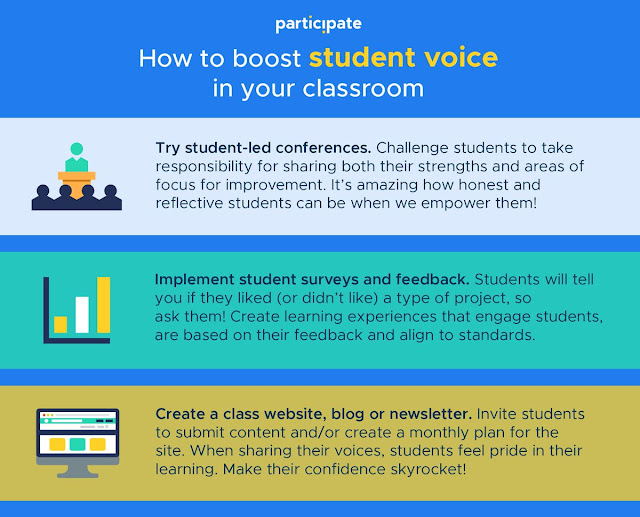The Importance of Providing Students with an Empowering Education
In "Empowering Education", Shor talks about the importance of participation and democracy in a classroom setting. These two things lead to an empowering education. Students feel they are contributing to something and feel encouraged to have their opinions and talk about what they think. Socialization is key to learning and students learn a lot from their peers.
This week I decided to do extended comments on Emily's blog because I feel that she chose quotes which really embody Shor's argument. The first two quotes that Emily chose talk about how children are born curious with the desire to learn. Asking questions leads to greater knowledge and so does interaction with the world. As Emily said it is human nature to want to learn and more specifically to learn from others, both are peers and those higher than ourselves in education.
The last quote Emily chose, like she said, is an example by Shor of what teachers should be doing. Shor gives great insight on how to be a teacher that empowers students. For one, Shor reminds us that students don't always want to be lectured at. They want to engage and interact. Students also want a chance to "feel smart". They want to be able to show off what they know to their teacher and their peers. Participation is key to the empowerment of students. Students who are empowered in the classroom are more likely to be successful and interested in continuing their education. Unfortunately, a student who is not empowered will lose the desire to learn and may even decide to end their education.
I feel that Shor is completely right. The concept of empowering students is not a new one to this class. Like how Collier provides tips for teachers to help bilingual students preserve their cultural identity and feel the value of their culture, Shor provides tips for teachers to help students feel intelligent and that the knowledge they can provide has value. All students want to feel that they are valued and what they bring to the table is valuable.
This photo gives three simple ways to boost student voice and participation in the classroom. All of these would make a student feel that they are contributing something valuable to the classroom.
I have included a video which talks about increasing student engagement to increase a desire to learn. This video captures the main points Shor is making.
Question for the class: Do you think lecturing in elementary classrooms has any value really?
I have included a video which talks about increasing student engagement to increase a desire to learn. This video captures the main points Shor is making.
Question for the class: Do you think lecturing in elementary classrooms has any value really?


You did a really great job! I like the picture you included as well. As for your question, I think it has value for certain lessons, but it's not always as effective as doing things hands on, with fun learning activities!
ReplyDeleteI agree with your feelings towards lecturing in class room, I feel that in especially an elementary classroom they should not be lectured. The younger the student the easier it is for them to zone out or not pay attention. The students want to be active learners and like you mentioned "feel smart"
ReplyDeleteI love how you extended from Emily's blog. Also, the question you ask at the end creates a great point. Personally, I work better hands on but lecturing can help to an extent. Overall, well done!
ReplyDeletehi Amanda, I enjoyed reading your blog! you explained everything very good!
ReplyDelete